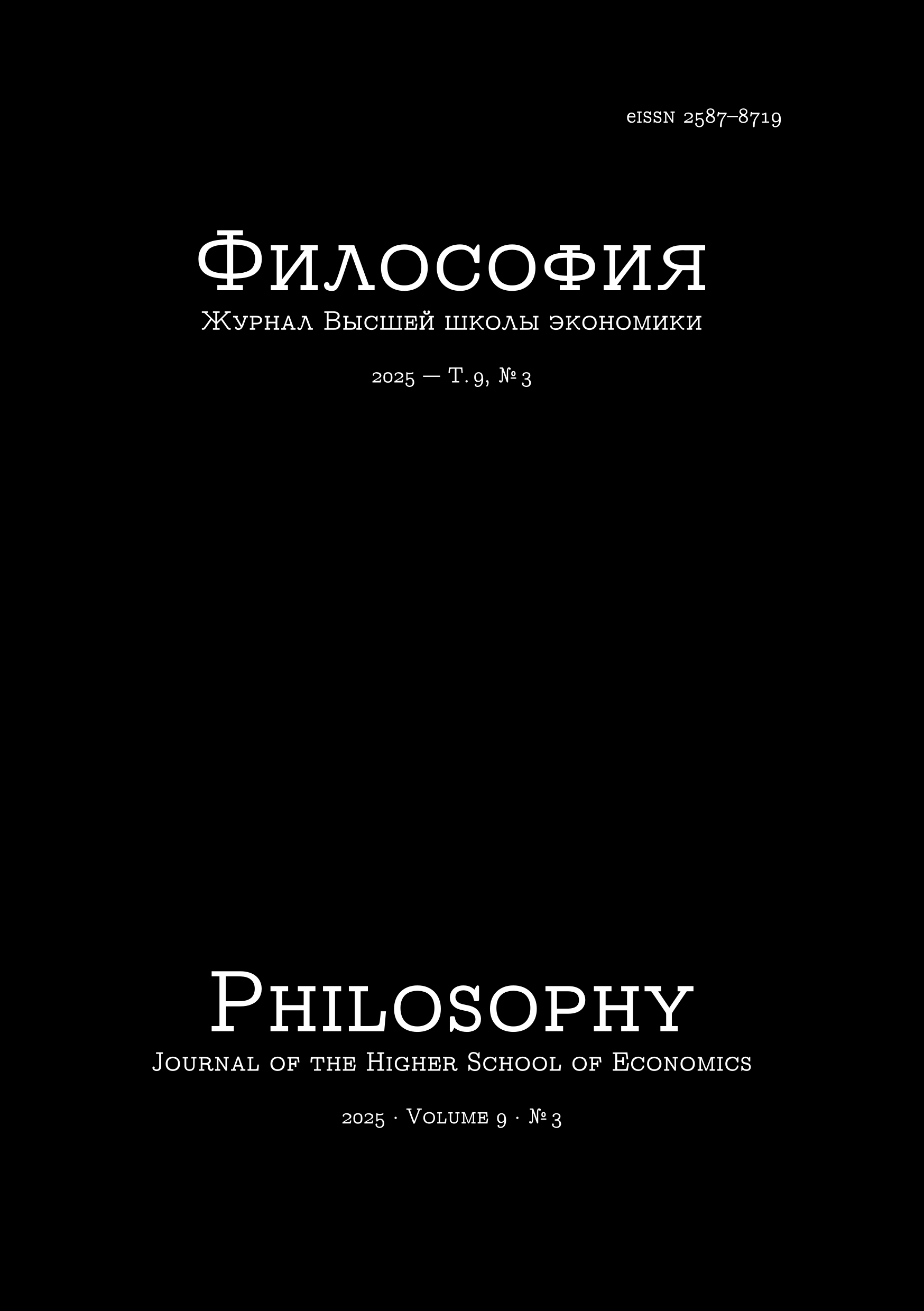Nikolai Berdyaev and Martin Heidegger
On the Question of Understanding Time and the Foundations of Existential Philosophy
Abstract
This article examines the concepts of time of Nikolai Berdyaev and Martin Heidegger, key figures of Russian and German existentialism. The aim of this article is to identify the consonance between the philosophy of time expressed in Martin Heidegger's “Being and Time” and the project of Nikolai Berdyaev's philosophy of time, and to show what role Heidegger's critique of the philosophy of time played for Berdyaev's later definition of his philosophy as existential. The paper shows that both Berdyaev and Heidegger set themselves the task of overcoming a certain type of ontology (which substantiated both a number of positive sciences and even a special type of theology) that objectifies what Berdyaev calls primal reality. However, from Berdyaev's point of view, Heidegger did not succeed in bringing his project to its logical conclusion and creating a philosophy of primordial realities: he remained within the framework of objectified metaphysics, whereas Berdyaev, who returned to Kant's dualistic understanding of reality, succeeds in philosophically expressing the reality of spirit and in showing the multidimensionality of time, which reveals itself differently in different states of reality. Philosophy, which overcomes the plan of objectification and is not itself the objectification of the ultimate foundations of being, Berdyaev calls existential.
Downloads
Copyright (c) 2025 Philosophy Journal of the Higher School of Economics

This work is licensed under a Creative Commons Attribution-NonCommercial 4.0 International License.






